On Nov 26, on talents work conference, the Talent Youth Project and Young Post-doc & Co-advisor Support Program under Chinese Academy of Sciences Shanghai Branch were launched. Young scientists in IPS, namely, Nicolas Berthet, CHAO Yanjie, JIANG Lubin, LIU Xing, MENG Lu and WANG Chengyuan were all included.
IPS has always been fully implementing decisions of the Party Central Committee and the Party Group of the Institute on the work of talents in the new era, attaching importance to the building of a talent hub at all levels, continuously introducing and nurturing outstanding young scientific and technological innovators, and providing them with a good development platform with strong support.
Herein great congratulation to all included scientists with best wishes to their future greater progresses. As members of the national team, each national player in the playfield of science shall deeply concern the future of the nation and shoulder corresponding responsibilities, contributing to scientific and technological innovation of our nation.
Nicolas Berthet: Genome sequencing- key to defeat virus
PI: Nicolas Berthet, post-doctoral fellow of discovery and molecular characterization
Selected program: Young Post-doc & Co-advisor Support Program
Post-doc winner: Meriem FASSATOUI
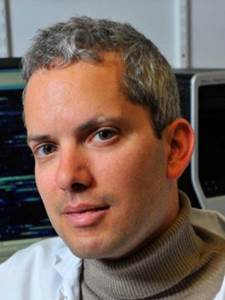
Prof. Berthet organized the research group of discovery and molecular characterization of pathogen after he joined IPS in 2019. His research team identifies and analyzes the molecular pathogen through various sequencing technologies to conduct Metatranscriptomic and Macrotaxomics of viral 16S rDNA, 18S rDNA and whole genome sequencing (WGS) with combination of high-throughput sequencing technologies of the second and third generation with bioinformatics technology, especially through anaerobia isolated from intestinal flora to further identify intestinal virus.
Prof. Berthet once worked for various research of virus sequencing such as Zika virus, Ebola virus and coronavirus. During the outbreak of the coronavirus in 2020, he conducted the WGS of coronavirus by the nanopore sequencing, as one of the backbone of research team of finding the cure to the pandemic of IPS. Besides, he also compares the real time sequencing technology Ampliseq with the next generation sequencing (NGS) to SARS-CoV2 genome. In addition, he analyzed and evaluated the feasibility of integration of HPV genome to human genome to work as the prognostic markers for cervical cancer and developed an enrichment method for the third generation sequencing of HPV gene set. Currently, Prof. Berthet leads his team to successfully establish a relatively mature platform for third-gene sequencing and analysis, and actively seeks for cooperation inside and outside the Institut, levelling up the Institut’s research capabilities and speed in related fields.
He also analyzes and evaluates the feasibility of integration of HPV genome to human genome to be used as prognostic marker for cervical cancer and develops an enrichment method for third generation sequencing of HPV genome.
CHAO Yanjie: Discovery to function and mechanism of noncoding RNA
PI: CHAO Yanjie, post-doctoral fellow of RNA Microbe Biology
Selected program: Young Post-doc & Co-advisor Support Program
Post-doc winner: LIU Fang
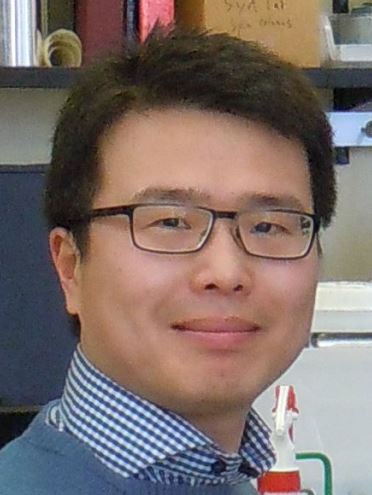
Prof. CHAO established a research team of Microbial RNA Systems Biology after his accession to the Institut Pasteur of Shanghai in 2021, which mainly studies the important pathogenic bacteria and intestinal flora, by unique high-throughput sequencing technology and functional genome research to analyze the change of transcriptome RNA and key functional genome, and novel noncoding little RNA, RNA-binding protein and little protein, in an effort to deepen our understanding to pathogenic microbe, drug-resistance, and mechanism of host-pathogen interplay and symbiosis, and develop new antibacterial agents and vaccines.
Prof. CHAO for the first time discovered a new type of non-coding RNA hidden in mRNA and illustrated the molecular mechanism for synthesis, processing, and interference of this type of small RNA, achieving a series of original scientific results. Besides, he also reported for the first time the CRISPR-Cas9 system and completed the in vitro identification of tracrRNA with his participation in the research led by 2020 Nobel prize laurate Emmanuelle Charpentier in Chemistry, providing the core tools for genome editing and revolutionizing the biomedicine industry. Prof CHAO also published multiple papers in world-renowned top journals such as Nature, and Molecular Cell, served as a BMC Genomics editor and review expert in more than 20 SCI journals including mBio and NAR.
JIANG Lubin: Consistently finding a new strategy for malaria prevention and control.
PI: JIANG Lubin, Deputy Director of IPS, post-doctoral fellow of Pathogen-Host Interaction and Epigenetics of Malaria
Selected program: Young Post-doc & Co-advisor Support Program
Post-doc winner: HUANG Zhenghui, LI Sujin, WANG Xiaoxing
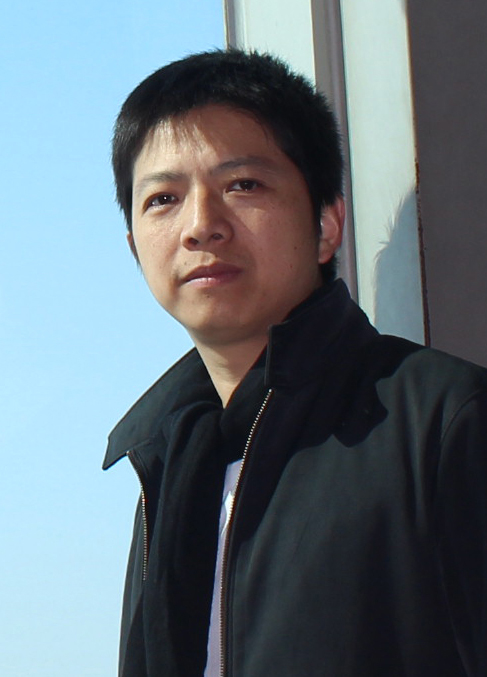
Prof. JIANG has led the major research that are awarded the Performance Prize by NIH in 2010, Key D&D Program of Ministry of Science and Technology of the People’s Republic of China and Distinguished Young Talent Program of National Natural Science Foundation of China. He also publishes various research papers on Nature and PNAS as a corresponding author, and his equally tremendous talent can be reflected by commercialization of his technical and scientific findings: over 6 national and international patents on anti-malarial drugs under PCT are granted, a type of small-molecule drug of which won him over a chance to sign the cooperation agreement on patent development of above patent portfolios, and its pre-clinic research has come to an end, a second round Pre-IND application for clinical trial permission has been submitted to center for drug evaluation, NMPA for review.
LIU Xing: Dedicated to revealing a novel mechanism for host immune response and mitigation.
PI: LIU Xing, post-doctoral fellow of immune response and immunotherapy
Selected program: Young Post-doc & Co-advisor Support Program
Post-doc winner: CHEN Pengcheng
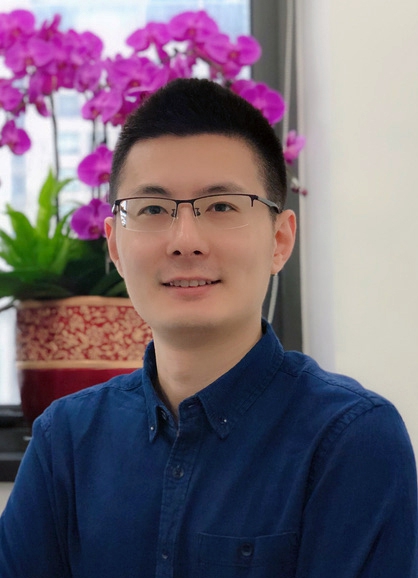
Prof. LIU sets up a research team of immune response and immunotherapy since he was provided a position in IPS, 2018. He has been working on host infection and mechanism for antineoplastic immune response and mitigation with focus on finding a cure to the major basic scientific research, aiming to reveal the key innate immune patterns for immune regulation, especially for pyroptosis, and provide new candidate target and effective treatment for treating immune-related diseases, working as a theoretical underpinning for development of human health, biotechnology and biomedicine.
Prof. LIU led his team has achieved multiple original breakthroughs with considerable force in his research area, papers of which are in many internationally renowned journals such as Nature, Science and Nature Immunology, a great leap making China strong in core competence in infection and immunology.
MENG Lu: Dedicated to the high-speed development of next generation antibodies
Associate Professor: MENG Lu, post-doctoral fellow of Natural Defence and Immunomodulation, Head of Antibody Drug Development Platform, Senior Technical Specialist
Selected program: Talent Youth Project
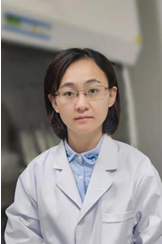
Associate Prof. MENG was once funded by Youth Innovation Promotion Association CAS in 2021, and hosted a program of National Youth Natural Science Foundation of China and an original project of Shanghai Natural Science Foundation, as well as the Shanghai Talent Development Fund. She is actively involved in the "Collaborative Innovation Platform for Infectious Disease Immunology and Diagnosis Technology" in the Shanghai Science and Technology Innovation Centre, and is responsible for the “Antibody Drug Development Platform” which as a core component, will constitute to bridge the technology and pathway from original theoretical discovery to innovative antibody drug development. She plans to lead the "Antibody Drug R&D Platform" to create promising generic technology for antibody formulation within two years, and build an efficient and rapid R&D system for antibody drugs.
WANG Chengyuan: interpretation of new mechanism of gene transcription and regulation
PI: WANG Chengyuan, post-doctoral fellow of gene transcription and regulation under structure biology
Selected program: Talent Youth Project
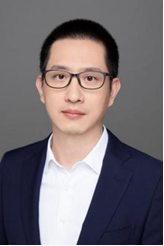
Prof. WANG is a new member in IPS in 2021, before he set up a research team for gene transcription and regulation under structure biology, mainly working towards regulation of bacterial metabolism, especially research on molecular mechanism of gene transcription regulation in bacteria. He actively brings in advanced theories and technologies in scientific research, stretches out new director to solve engineering and technological issues.
Prof. WANG led his team to successfully decode the structure of mechanism of transcription and translation coupling through structure biology, molecular biology and biochemistry, and reveal a series of molecular mechanisms such as the interplay between RNAP and ribosomes, the synergistic mechanism of transcription factor NusG, the coordinated action transcription factor NusA, and the change of messenger RNA length during the synergistic process, deepening our understanding to gene expression of bacteria and its regulation patterns, and also providing a new choice for developing novel antibacterial antibiotics. Besides, in terms of secondary plant metabolism, he interpreted the catalytic mechanism of some key enzymes in important natural plant (terpenoids, amides, sugars, etc.), providing an important reference and research basis for further use of these natural metabolites.
Embarking on a new journey with responsibility and opportunities entitled by the new era, national teams of scientific research are heading towards a path to realize national rejuvenation and high-level scientific and technological self-reliance and self-independence with sense of purpose catching up with time.

